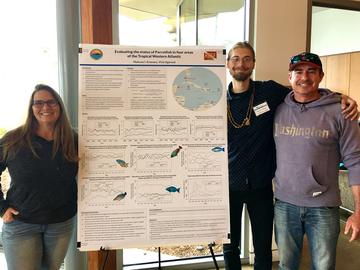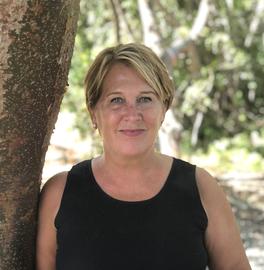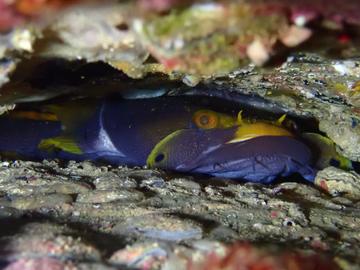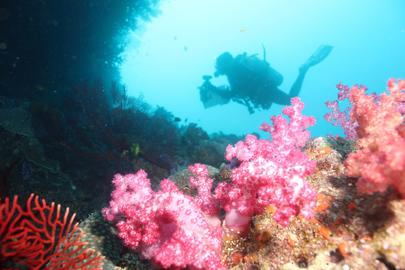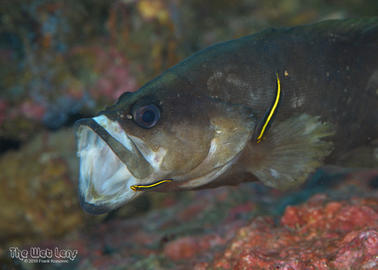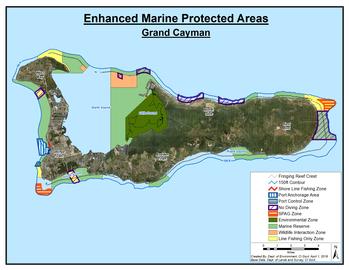Herbivores play a critical role in balancing coral reef ecosystems. In the Caribbean, this role is mostly filled by parrotfish, surgeonfish, and sea urchins. Parrotfish take their important role one step further in that their constant scraping of algae growing on rock and dead coral results in a lot of poop, which is effectively the nice white sand found on beaches. A single parrotfish can generate up to 700 pounds of sand a year. Parrotfish are also a favorite food fish, and unfortunately their populations have been heavily depleted in many areas.
Caroly Shumway has left REEF after serving as its Executive Director to pursue opportunities related to addressing climate change. While at REEF, she helped advance our strategic partnerships, scientific applications of our programs, and our financial and regulatory procedures. We are grateful for her contributions to the organization. Caroly remains a committed conservationist, and we wish her well in her future endeavors.
The Volunteer Fish Survey Project is REEF’s cornerstone citizen science program, and was the foundation of the organization’s inception. The goal of the program is to enlist divers and snorkelers to report fishes they see during their time in the water; documenting status and trends much in the way birdwatchers do for birds. The first REEF surveys were conducted in 1993 by a few dozen volunteers in the waters off Key Largo, Florida. The program has grown significantly, with more than 16,000 volunteers participating and 230,000 REEF surveys conducted at sites around the world.
We are excited to share details of two recent scientific publications that leverage the long time-series of species composition information that our citizen science surveys provide. The first study looked at how reef fish community assemblages have changed over time at several sites in Florida. In particular, the researchers looked for evidence of biological homogenization (increasing species similarity between sites.) Homogenization can alter the ecological function of systems as well as the economic value associated with ecosystems. Dr.
This paper describes cleaning behavior that had previously not been documented in a particular species. The findings are the result of the keen eyes of two active REEF surveyors – Carol Cox and Frank Krasovec. Carol frequently surveys in the northern Gulf of Mexico and Frank surveys in his home state of North Carolina. Both photographed Yellowprow Goby, Elacatinus xanthiprora, cleaning other fishes, which is not typical for the species. Scientist and frequent REEF advisor, Dr.
A recent paper in Journal of the Ocean Science Foundation describes cleaning behavior that had previously not been documented in a particular species. The findings are the result of the keen eyes of two active REEF surveyors – Carol Cox and Frank Krasovec. Carol frequently surveys in the northern Gulf of Mexico and Frank surveys in his home state of North Carolina. Both photographed Yellowprow Goby, Elacatinus xanthiprora, cleaning other fishes, which is not typical for the species. Scientist and frequent REEF advisor, Dr.
The lead author of this study has previously used the REEF Volunteer Fish Survey Project database to construct detailed food webs of coral reef ecosystems in several Caribbean locations, including Jamaica (see here). In this paper, the authors assess the reliability of historical reconstructions of biodiversity from the paleocommunity by simulating the fossilization of a highly threatened and disturbed modern ecosystem, a Caribbean coral reef.
This paper presents reconstructions of coral reef food webs in three Greater Antillean regions of the Caribbean: the Cayman Islands, Cuba, and Jamaica. The REEF Volunteer Fish Survey Project dataset is one of several used to construct the food webs. The datasets presented in this publication will facilitate comparisons of historical and regional variation, the assessment of impacts of species loss and invasion, and the application of food webs to ecosystem analyses (e.g.
The authors of this study looked at how reef fish community assemblages have changed over time at several sites in Florida. In particular, they looked for evidence of biological homogenization (increasing species similarity between sites), which can alter the ecological function of systems as well as the economic value associated with ecosystems through complex socio-ecological dynamics.
We are very excited to share some great news from our Grouper Moon Project colleagues at Cayman Islands Department of Environment (DOE) – on April 1, 2019, the Cabinet of the Cayman Islands approved the most significant expansion and enhancement to Cayman’s existing marine parks system since the areas were established in 1986. The “no take” zones, including marine parks/reserves, environmental zones, and wildlife interaction zones, will increase from a national average of approximately 14% to 48%.

